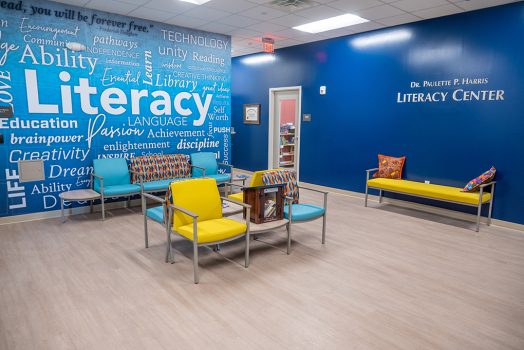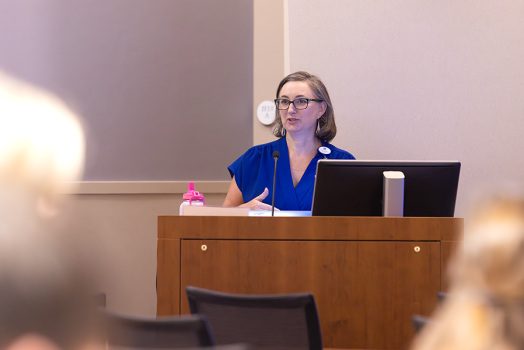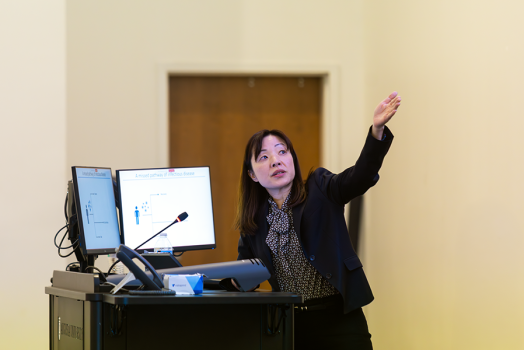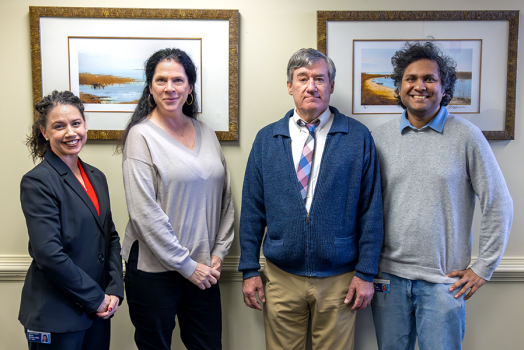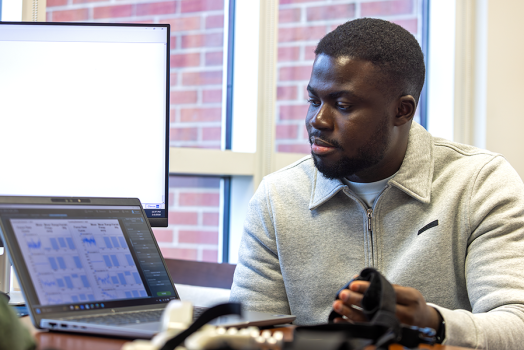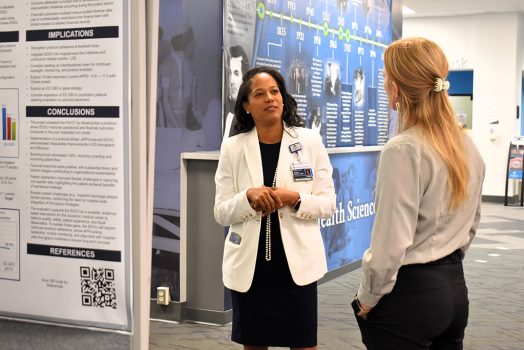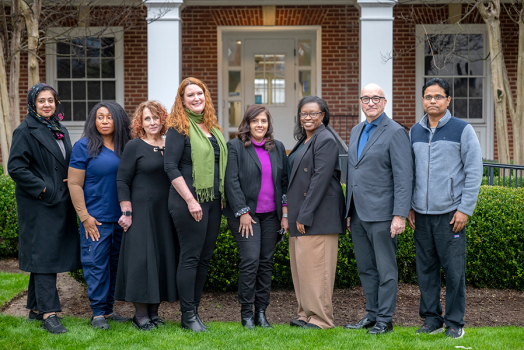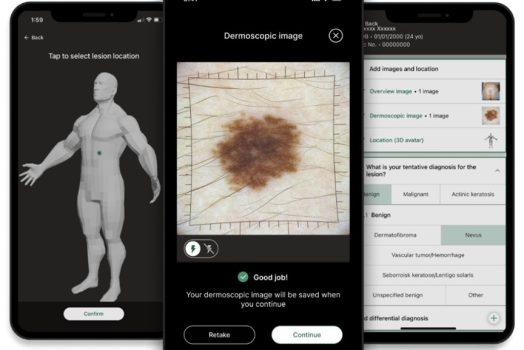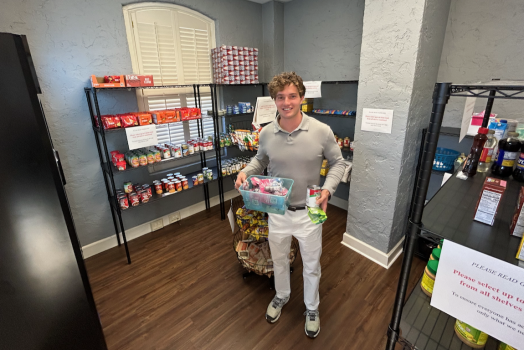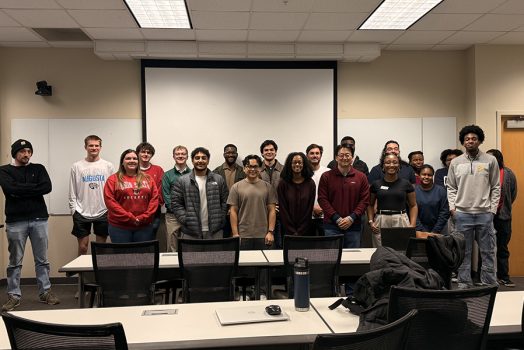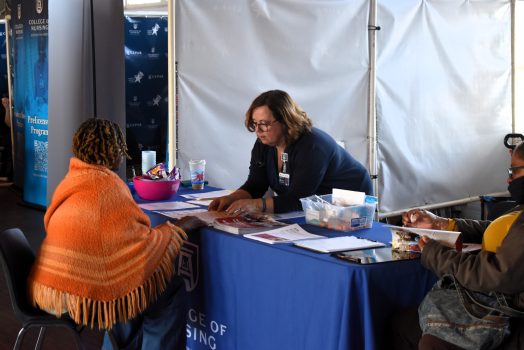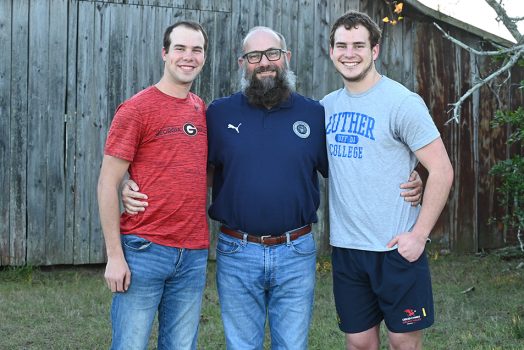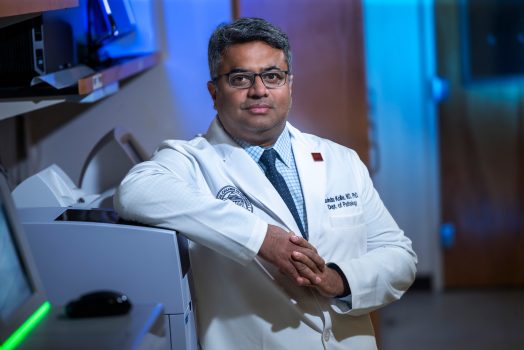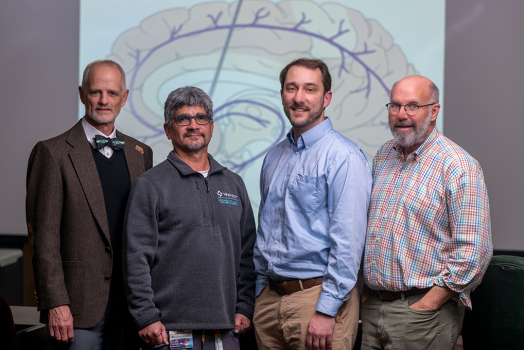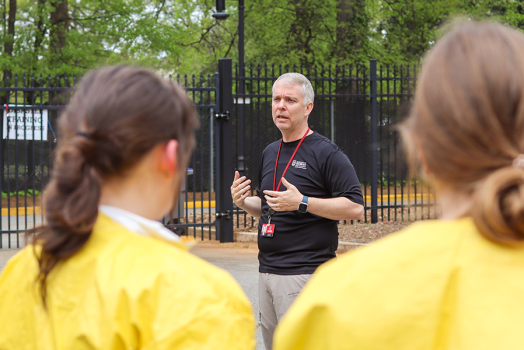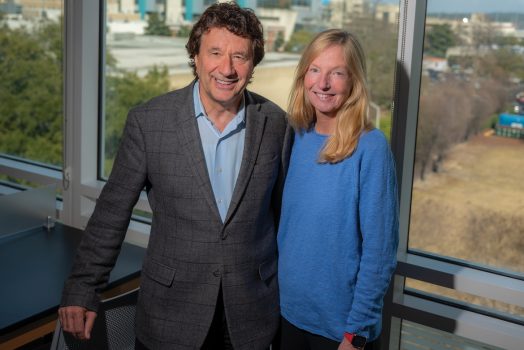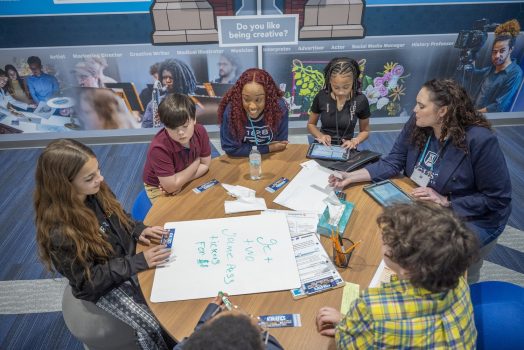The center will receive a $20,000 award to further strengthen its literacy initiatives and expand access to high-quality reading support for children, families, and adult learners...
“I think that there is momentum to make health care better, and I’m excited to continue these partnerships to advance the priorities," says Teal W. Benevides, PhD.
James Njuguna and Maddie Edwards were crowned AU’s 2026 Homecoming King and Queen, while Bryson Walker and Caroline Swift earned the titles of Duke and Duchess.
“She explained the features and symptoms of viral infections that result in incomplete resolution, including long COVID," says Klaus Ley, MD.
“The study highlights the very high prevalence of CKMS in the adult U.S. population, as well as differences by sex or gender across the lifespan," says Steven Coughlin, PhD.
“It shows that the work we are doing is being recognized, and I’m very grateful to the award selection committee," says Albert Okrah.
The 2026 Augusta University Homecoming court elections open at midnight on Sunday, Feb. 15 and close at 11:59 p.m. on Thursday, Feb. 19.
Colleen Walters, PhD, is one of 26 nurse educators chosen from colleges, universities and health care institutions to participate in the 2026 NLN LEAD program.
“We are expanding our fellowship from four to five fellows, which will expand our availability to help the population served by MCG,” says Jasmine E. Shell, MD.
"Although skin cancer is one of the most common cancers in the United States, it is also one of the most preventable,” says Brenda Santellano, MD.
"Relationships are probably the number one aspect of business – it's relationships, communication and how well you connect with others," says Lucas Blouin.
During the spring semester, 20 AU students are enrolled in Service Learning in Tax and have completed IRS-required certifications.
The College of Nursing hosted two days of community events, specifically providing healthcare to employees of Horizon and adults enrolled in the Healthy Grandparents Program.
“I think I was excited to combine efforts with my family and three stages of Medcalfe education – undergrad, graduate and professor – into one paper,” says Rhys Medcalfe.
"We will be able to make a more specific diagnosis, better classify the cancer, give a better prognosis and enable better therapy choices," says Ravindra Kolhe, MD, PhD.
“Our staff and Board of Directors look forward to welcoming the runners and spectators at the Summerville Campus for our annual signature event," says Michelle Pippin.
“We want the patients to have the same clinical dementia ratings or better two years from now,” says David T. Blake, PhD.
I’m excited about the dedicated support that Curt can provide to SPH faculty to ensure their long-term success," says Teresa Waters, PhD.
"This lecture will offer valuable insight for established researchers and clinicians, as well as the next generation of immunologists," says Klaus Ley, MD.
"Together, we are strengthening our communities while advancing the mission of Augusta University," says AU President Russell T. Keen.
 Augusta University
Augusta University

